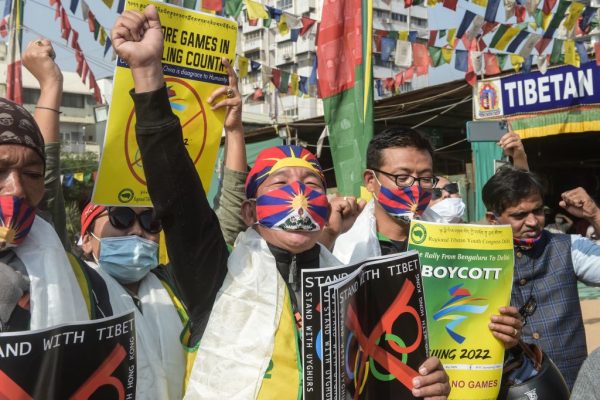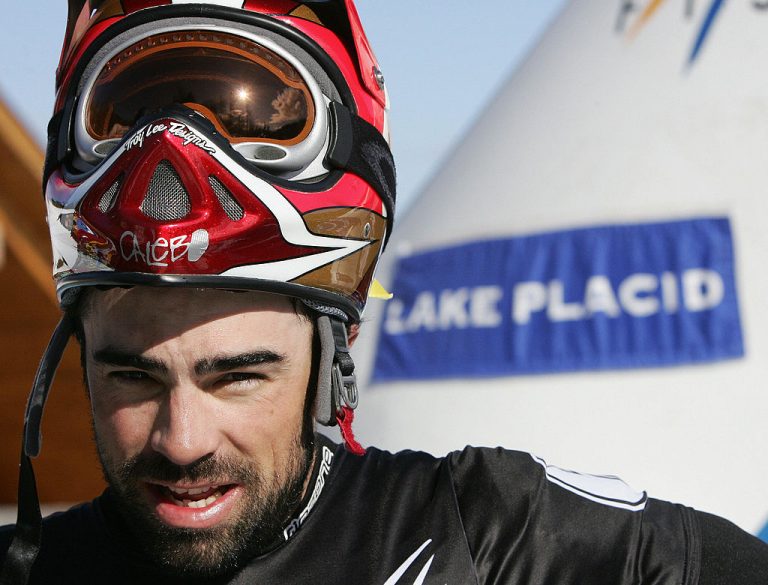Canadian Drew Neilson, a former snowboard champion, has called for a complete boycott of the 2022 Beijing Winter Olympics, citing human rights issues that he believes shouldn’t be ignored.
“I’m really disgusted. I don’t even want to be called an Olympian anymore,” Neilson, 47 and now retired, told the CBC. “The IOC recognizes … human rights as enshrined both in the fundamental principles of the Olympic Charter and the code of ethics, and they say the IOC takes this responsibility very seriously. But do they?”
They are remarkable words from a man who represented Canada twice at the Winter Olympics; in Turin in 2006 and Vancouver in 2010, where he finished 17th and 11th, respectively, in snowboard cross. Neilson was also a nine-time World Cup race winner and the overall champion in 2007.
“It just boggles my mind that people can look away from what’s going on in China, just so they can watch people play games for little pieces of metal,” he told the broadcaster. “That’s really sad and unfortunate.”
Neilson senses this intensely; he’s contemplating requesting the Canadian Olympic Committee remove his name from the historical chronicle. The retired winner articulated that he has even pondered joining demonstrations against China and torching his Olympic gear in solidarity.
China’s human rights issues
Success
You are now signed up for our newsletter
Success
Check your email to complete sign up
It is undisputed that the Chinese regime has an extensive record of human rights violations.
Especially renowned were Beijing’s campaigns against its own population during the Giant Leap Forward and the Cultural Revolution, campaigns where tens of millions lost their lives.
Furthermore, there are ongoing campaigns against Tibetans, Uyghurs, the people of Hong Kong, Falun Gong practitioners, and Christians, as well as individual cases of state-sponsored disappearances.
“I’m not against the Olympics; I am against defending the organization that is running it and [the country] they are taking it to,” Neilson asserted.

Few governments have chosen to speak out against the Chinese Communist Party and implement a full boycott.
Canadian Prime Minister Justin Trudeau said that Canada would implement a “diplomatic boycott,” meaning it won’t send any diplomats or politicians to the games; however, athletes would still compete. But that didn’t impress Chinese authorities as diplomats are not invited to the games by rule.
Regretting the boycott
In 1980, former would-be Canadian Olympic swimmer Eugene Gyorfi was 16 when Canada followed the U.S. boycott of the Moscow 1980 Olympic Games after the Soviet Union invaded Afghanistan.
“I still have the letter from the government announcing the boycott and how it wasn’t just athletes. [It said] farmers weren’t going to be selling grain to the Russians and that there were a number of measures that were really going to show the Russians,” said Gyorfi.
“It made no difference … it didn’t cause them to withdraw their troops, and it didn’t cause them to change their political policies.”
“It’s especially unfortunate from an athlete who was able to participate and see the benefit of those competitions,” he added.
The Canadian administration implemented its boycott after U.S. president Joe Biden announced his version of a diplomatic boycott on Dec. 6.
“We believe U.S. athletes, people who have been training, giving up a lot of blood, sweat, and tears preparing for these Olympics should be able to go and compete, and we look forward to cheering for them from home,” White House Press Secretary Jen Psaki said this month while announcing the boycott.

















